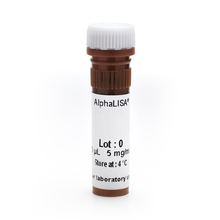
Anti-FLAG AlphaLISA Acceptor Beads 5 mg
产品名称: Anti-FLAG AlphaLISA Acceptor Beads 5 mg
英文名称: Anti-FLAG AlphaLISA Acceptor Beads 5 mg
产品编号: AL112M
产品价格: 0
产品产地: 美国
品牌商标: PerkinElmer
更新时间: null
使用范围: null
上海希言科学仪器有限公司
- 联系人 :
- 地址 : 上海市松江区博安路377号立同商务广场3063-3067室
- 邮编 : 201615
- 所在区域 : 上海
- 电话 : 152****9581
- 传真 : 021-67618321
- 邮箱 : market@xiyanlab.com
